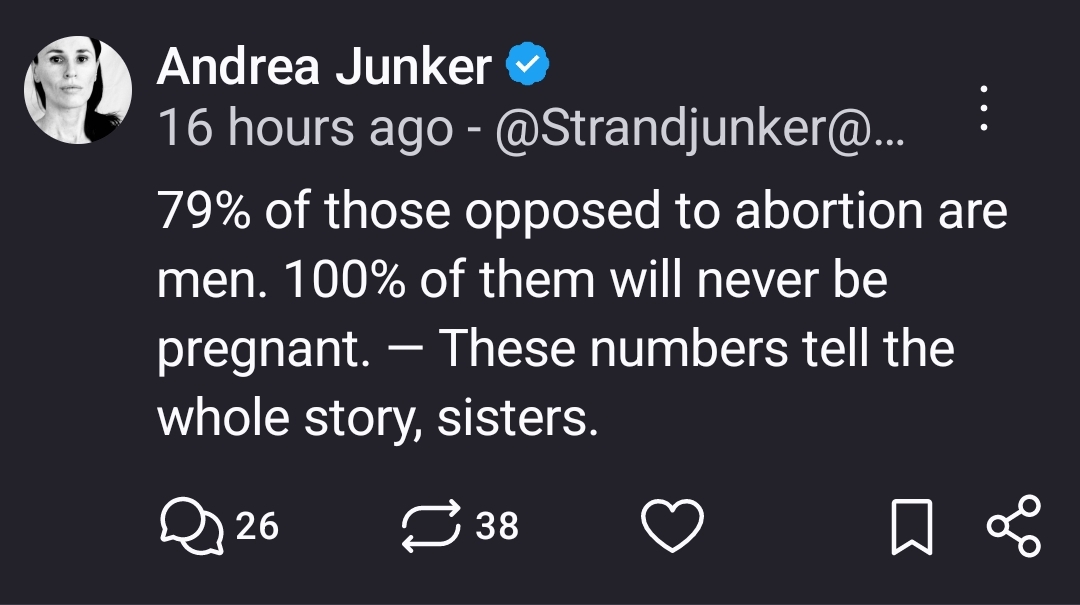this post was submitted on 23 Oct 2024
678 points (90.6% liked)
People Twitter
5145 readers
978 users here now
People tweeting stuff. We allow tweets from anyone.
RULES:
- Mark NSFW content.
- No doxxing people.
- Must be a tweet or similar
- No bullying or international politcs
- Be excellent to each other.
founded 1 year ago
MODERATORS
you are viewing a single comment's thread
view the rest of the comments
view the rest of the comments

Doesn't matter. If you take those numbers, let's say 4 out of 10 men are against abortion, so you put them in a pile.
Then you take 3 out of 10 women against abortion and you put them in the same pile.
So now you have a pile with 4 men and 3 women who are against abortion. Which would mean 4/7 people who are against abortion are men. Which is 57%. Not 79% at all.
Either way. What's the source. Should always source your statistics.
82% of statistics are made up on the spot. Everyone knows that.
69% of the time, it works every time
nice
Your point is probably still generally correct because the percentage of men and women in the population is close to 50% each but in general the argument doesn't work unless you have equal numbers of both in the population.
It does matter, you’re assuming that they surveyed equal number of men and women, but I don’t see anywhere on that site that indicates that. Example in which op could be correct along with the statistics from (or close enough because I am on my phone and can’t get too complicated). Let’s create our dataset that could fit both results, let’s say they surveyed 100 people, 74 men and 26 women. From that 36 people are against abortion, 28 men and 8 women. So 36% of people surveyed are against abortion( This part matches the overall %s from the survey). Those 28men make up 78% of the people against abortion (this part matches OP). If we calculate them within each gender, 38% of the men are against abortion and 29% of women are against abortion (numbers got a little different here, but it’s close to the survey results). I am assuming that they didn’t have equal number of men and women, that’s why they stayed away from that calculation.
It does matter, you’re assuming that they surveyed equal number of men and women, but I don’t see anywhere on that site that indicates that. Example in which op could be correct along with the statistics from (or close enough because I am on my phone and can’t get too complicated). Let’s create our dataset that could fit both results, let’s say they surveyed 100 people, 74 men and 26 women. From that 36 people are against abortion, 28 men and 8 women. So 36% of people surveyed are against abortion( This part matches the overall %s from the survey). Those 28men make up 78% of the people against abortion (this part matches OP). If we calculate them within each gender, 38% of the men are against abortion and 29% of women are against abortion (numbers got a little different here, but it’s close to the survey results). I am assuming that they didn’t have equal number of men and women, that’s why they stayed away from that calculation.